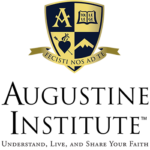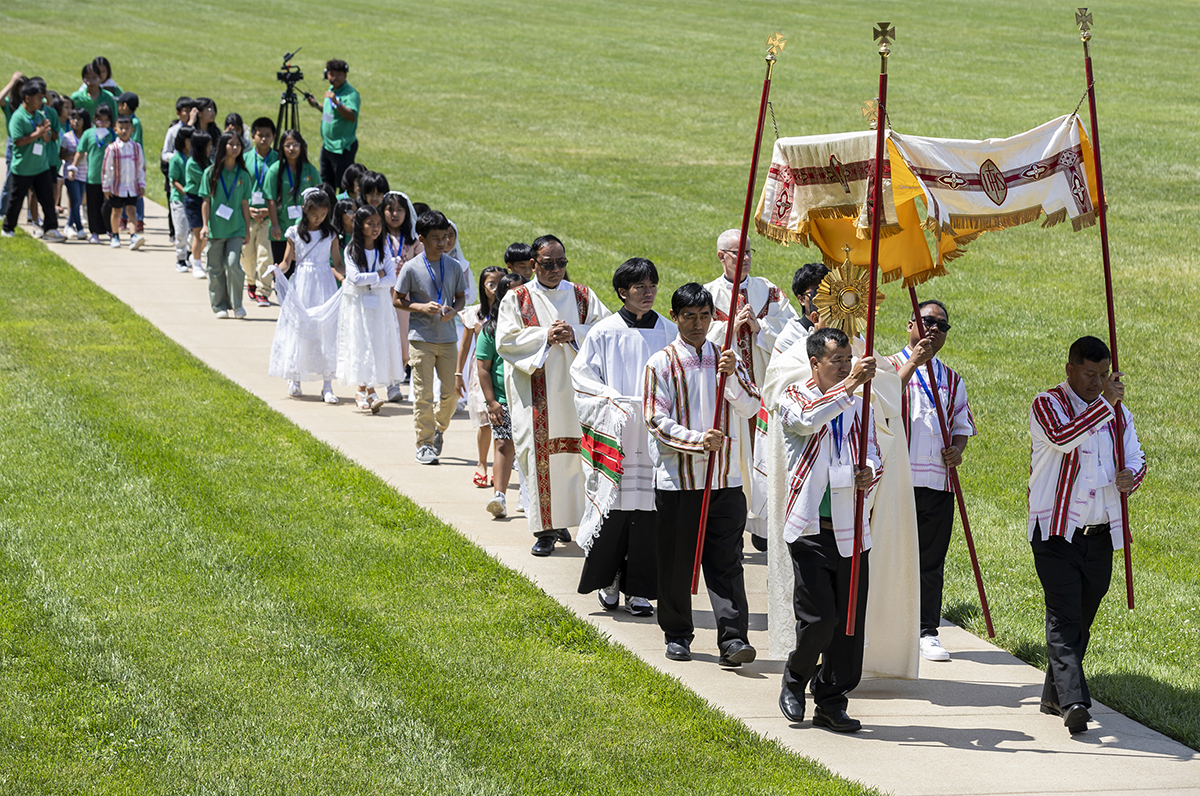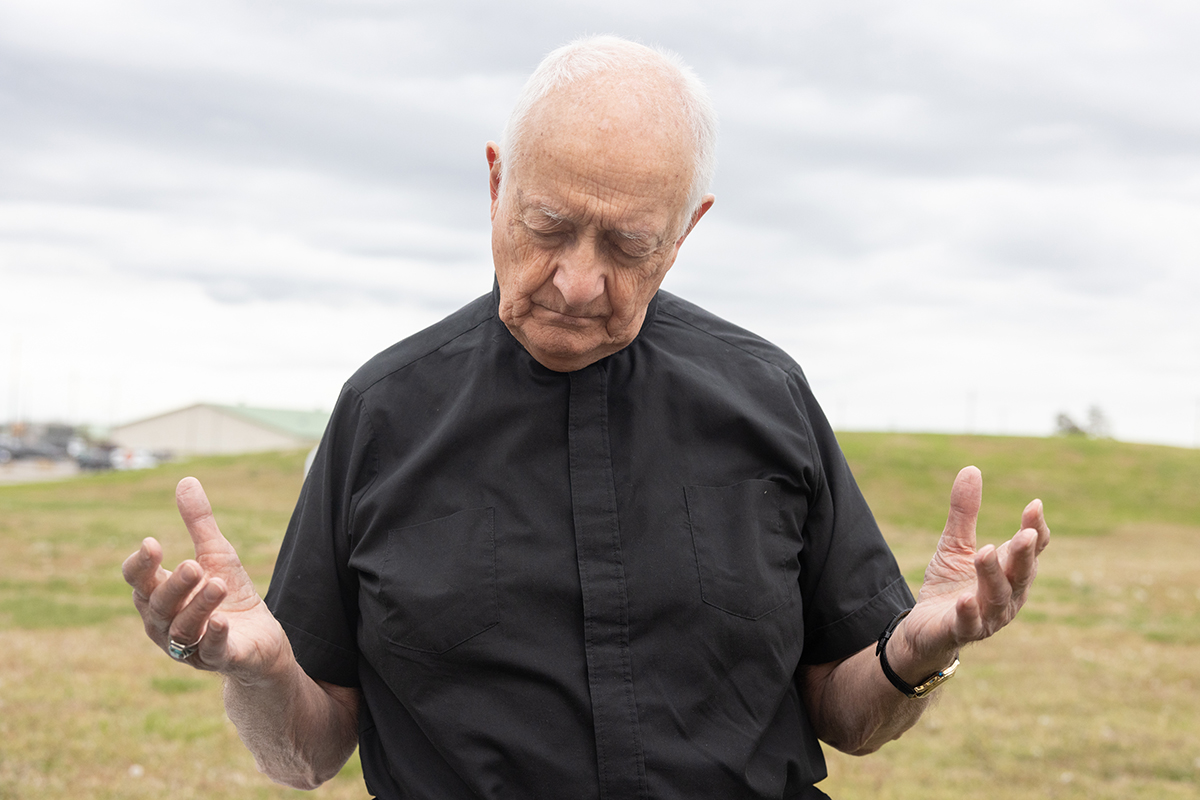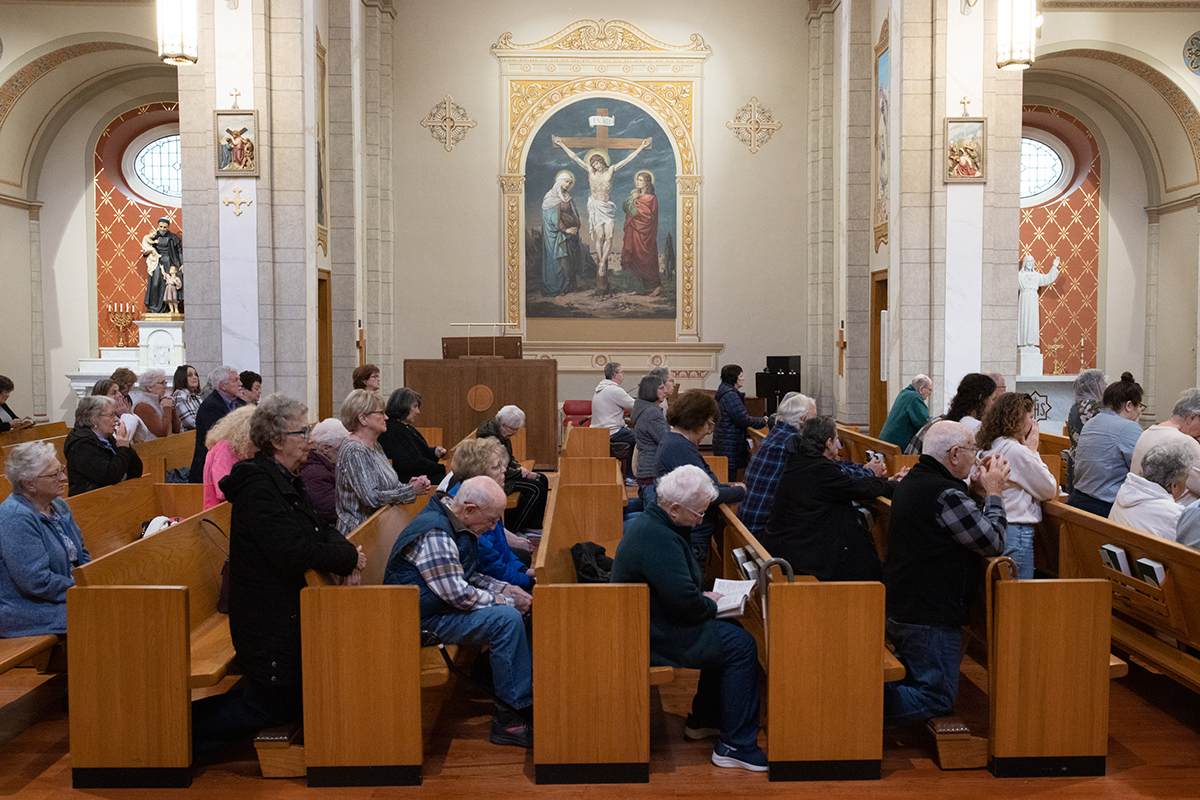As Augustine Institute considers a move to St. Louis, leaders, alumni share how it could have an impact here

As the Augustine Institute considers a move to the St. Louis area, several alumni shared how the institute has impacted them, while other Church leaders have shared what the move could mean for the Archdiocese of St. Louis.
The Denver-based, lay-led institute includes a graduate school that offers master’s level degrees in theology, pastoral theology, biblical studies and Catholic education. It also publishes catechetical and sacramental preparation materials for adults and children, produces films and podcasts, and created formed.org, a streaming service featuring Catholic content.
Several media outlets have reported that the institute is looking to acquire the former Boeing Leadership Center, a 286-acre campus in unincorporated north St. Louis County north of Florissant and overlooking the Missouri River. The property once owned by the Desloge family has been appraised by the St. Louis County assessor at $28.8 million. A sale has not yet been finalized.
The institute could play an important role in supporting Catholics as they move into the next stage of evangelization following the archdiocese’s All Things New strategic pastoral planning initiative, said Father Chris Martin, archdiocesan vicar for parish mission and vitality.
“There’s this symbiotic relationship that automatically pops up with our archdiocesan endeavors to make more vibrant parishes, offices and agencies and the resources that the Augustine Institute provides to help form disciples in their faith,” he said. “So if disciples make disciples, and we want to have parishes, offices and agencies that are full of disciples who are empowered, then they become great collaborators in that effort of discipleship.”
In January, the archdiocese announced the launch of “The Way: A Journey Toward Renewal and Vitality,” an experience to guide parishes and ministries in formulating a clear vision rooted in evangelization and assist in exploring diverse approaches to discipleship. With that, Archbishop Mitchell T. Rozanski released “Disciples Make Disciples,” a new pastoral vision for the archdiocese. “The Way” is considered the next step and ultimate goal of All Things New, the archbishop said.
“There’s an awakening that is happening within the archdiocese,” Father Martin said. “Having one of the premier apostolates for evangelization being in our own backyard — I don’t think that the Augustine Institute or the archdiocese fully knows all the good that will come from it. And so we’re going to live into it together.”
Several St. Louis-area alumni described the institute’s impact on their ministries. Andrew Shipp, who earned a master’s degree in theology in 2019, said that what attracted him to the institute was its practical approach to theology, making it “accessible in the everyday life for everyday Catholics,” he said.
It also prompted him to shift from youth ministry to the classroom, which he said afforded him greater opportunities to evangelize young people and share the truths of the faith. Shipp now serves as a sophomore theology teacher at St. John Vianney High School in Kirkwood.
“To share my experience and life with these kids, I tell them, you can do this, you don’t have to change who you are, but you can be yourself and find a true life in Christ,” he said. “The formation at Augustine Institute made the decision a lot easier through discernment and prayer, and it made sense that God was calling me to use the degree to reach more people.”
At least six students at Vianney are expected to receive the sacraments of Christian initiation at the Easter Vigil this year. Shipp said that he and other faculty have been inspired to challenge students, walking with them like in the Emmaus story — a theme he often heard as an Augustine Institute as a student.
“Jesus is walking with the people but pushing them to think a little deeper. At the breaking of bread, they realize who Jesus is,” Shipp said. Similarly as a teacher, he is “walking with the students, hearing their stories and telling them, this is good — what else is there? (The institute) pushed me to not be afraid to challenge the students a little harder and think deeply about what God might be saying at various points in their lives.”
A move to St. Louis would be a boost for the archdiocese’s Catholic identity, Shipp added. “We have such a rich history of Catholicism in our parishes, our high schools and even in things like CYC Sports,” he said. “This would be incredible for continuing to build up what is a pretty strong community and to drive Catholic identity further and to have stronger evangelization in the community.”
Jacinta Florence earned a master’s degree in leadership for the new evangelization in 2019. Before becoming a stay-at-home mom, she was involved in pro-life work with Students for Life of America and was a Catholic school teacher. As a student, she also worked with formed.org, the institute’s streaming service that offers Catholic content and claims to reach more than 1 million subscribers worldwide.
Florence, who is still involved with the pro-life movement as a speaker and volunteer with the archdiocesan Respect Life Apostolate, said she thinks the institute’s presence in St. Louis would help boost evangelization efforts here.
“Parishes, youth leaders, anyone can plug into those programs, and they’re all really great resources that are free for people to share the Gospel,” she said. “I hope they come here, because it’s a vibrant community and I know a lot of people could benefit from it.”
At Kenrick-Glennon Seminary, future priests representing 22 different dioceses are being formed to serve in an apostolic age, and that work requires “new ardor, methods and expression,” president-rector Father Paul Hoesing said.
All Things New revealed the issues facing the Church — which aren’t unique to the archdiocese — including attrition, lower rates of people practicing the faith and a cultural Catholicism that has fallen to secularism and relativism, he said.
Having the Augustine Institute in St. Louis would have a profound impact on local and regional efforts to prepare others for lifelong discipleship, “which is the fundamental vision for priestly formation — making disciples who are ready to receive Holy Orders and offer lifelong service to God’s holy people,” Father Hoesing said.
As the Augustine Institute considers a move to the St. Louis area, several alumni shared how the institute has impacted them, while other Church leaders have shared what the move could mean … As Augustine Institute considers a move to St. Louis, leaders, alumni share how it could have an impact here
Subscribe to Read All St. Louis Review Stories
All readers receive 5 stories to read free per month. After that, readers will need to be logged in.
If you are currently receive the St. Louis Review at your home or office, please send your name and address (and subscriber id if you know it) to subscriptions@stlouisreview.com to get your login information.
If you are not currently a subscriber to the St. Louis Review, please contact subscriptions@stlouisreview.com for information on how to subscribe.






